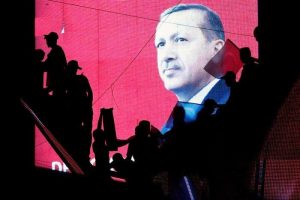The Turkish attempted coup: 3 scenarios
Re the ‘coup attempt’ in Turkey: three scenarios. 1. The attempted coup was as it’s been portrayed by the Turkish government – an anti-democratic coup that failed. 2. It’s a plot by President Recept Tayyip Erdogan to seize power (the conspiracy theory) – not likely but has some logic to it, and 3. There was growing tension between the army and Erdogan as he moved to further sideline ‘secular’ officers in the current round of promotions and retirements. This was in line with his move to change the constitution to make him executive president and moving Turkey towards being an Islamic state.
As some officers were discussing the possibility of Erdogan being removed to retain Turkey’s secular character, and given the divisions within the Turkish military over its engagement with Syria and Islamic State and its war on the PKK, this info was leaked and he and loyal officers were prepared. Caught out and knowing they had become especially vulnerable, the plotters acted before their plan was complete, hence its failure to do what most coups do – capture the political leader first – and its general lack of organisation.
The sacking of more than 2,700 judges appears to have been pre-planned, and has also had the effect of hobbling anything resembling an independent judiciary, hence compromising notions of a separation of powers and thus democratic checks and balances. The extensive purge that is currently under way, of police, more than a quarter of the military leadership and others, also looks to be more than aimed at coup plotters and much more about getting rid of the remnants of the ‘secular’ defenders.

That there was little support for the ‘attempted coup’ reflected one view that, even among those Turks who don’t like Erdogan, ‘a bad democracy is always better than a good military regime’.
Having said this, Erdogan and his (largely rural) supporters have opened up a sharp divide in Turkish politics, in which broad inclusion has been replaced with a ‘winner take all’ approach, which necessarily excludes some groups and often leads to internal conflict.
